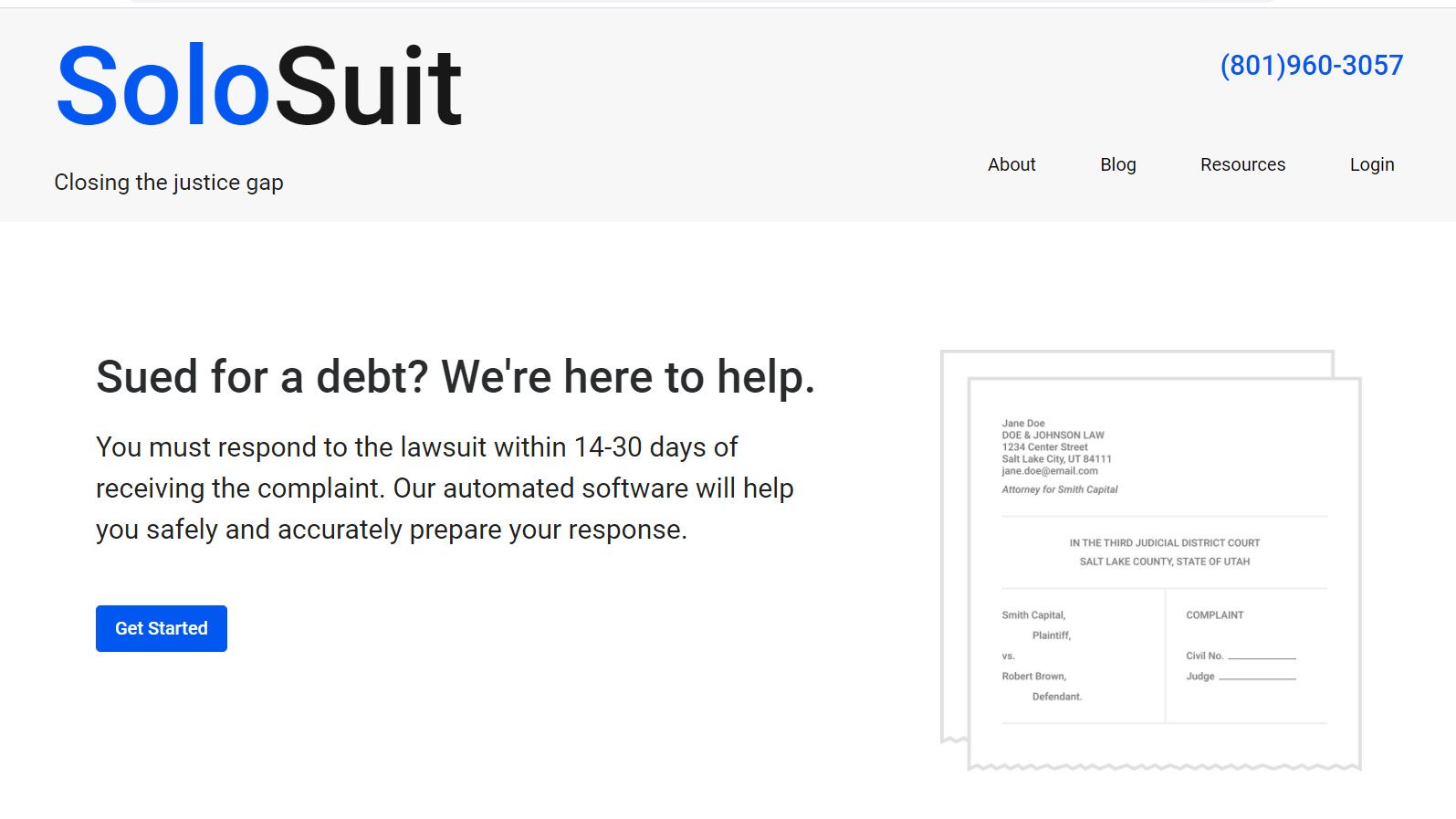SoloSuit, the Utah-based legal startup that helps consumers respond to debt collection lawsuits, and that originally emerged from LawX, the legal design lab at BYU Law School, is going national.
George Simons, who helped develop SoloSuit as a BYU Law student and is now the company’s owner and CEO, announced the expansion yesterday during a presentation as part of the Startup Battlefield pitch competition during the TechCrunch Disrupt 2020 virtual conference, where the company is competing for a prize of $100,000.

George Simons
The problem SoloSuit addresses is huge. Every year, some 10 million people are sued for debt, but 90% lose by default because they do not respond, often because they cannot figure out how, according to the Consumer Financial Protection Bureau.
While nearly all debt-collection plaintiffs are represented by counsel, fewer than 10% of defendants are.
SoloSuit’s free software walks a defendant through a series of prompts that prepares a response to the lawsuit. It also instructs the defendant on how to print and file the response.
While this basic service is free, a defendant can pay SoloSuit $15 to handle the printing and filing directly. This is important, Simons told me yesterday, because many debt defendants do not have access to a computer printer and still others do not have easy access to a post office.
For an additional fee of $115, SoloSuit will have an attorney review the document before it is filed, to ensure everything is in order.
In November 2017, I was fortunate to have the opportunity to sit in on the inaugural LawX class at BYU as it was still in the process of designing SoloSuit. In January 2018, BYU Law announced the release of SoloSuit, which was initially designed to help debt defendants solely in Utah.
But the problem it tackled is nationwide, Simons said, and he realized that people from all over the country were coming to the site and using the app, even though it carried a warning that it was for Utah cases only.
As Simons explored expansion into other states, he initially thought he would need to create a separate workflow for each state, to accommodate differences in state laws and procedures. But Simons says he was able to develop a single, simplified workflow that creates a response that works in every state.
Eventually, he said, he hopes to release a version that is more specifically tailored to each state.
Simons views SoloSuit as a technology that is helping to close the justice gap in the United States. And believes the need for the product will be even greater in the wake of the pandemic, because more than half of all debt collection lawsuits are for medical expenses.
He also sees the opportunity for SoloSuit to be successful as a for-profit startup serving a problem of access to justice. The company’s “freemium” model enables anyone to access the platform for free, or pay a small amount for the additional services it offers.
“We trying to close the justice gap,” Simons said, “making legal services accessible as a for-profit tech startup.”
 Robert Ambrogi Blog
Robert Ambrogi Blog